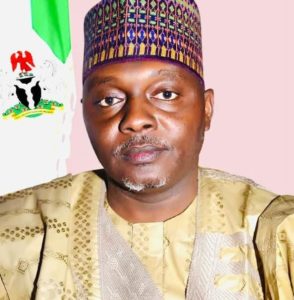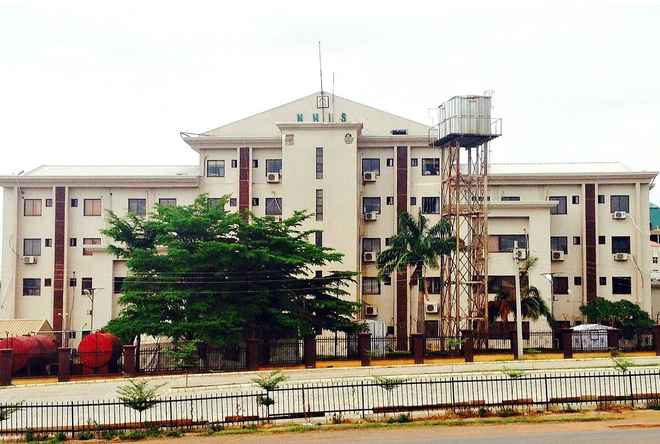By Adeyemi Adekunle
ABUJA – For Blessing Amadi, a petty trader in Lagos, the news that Nigeria has surpassed its 2024 health insurance enrollment target with 19.2 million Nigerians now covered is more than a statistic. It is a glimmer of hope that her family’s battles with skyrocketing medical costs may soon come to an end.
Blessing’s youngest child, four-year-old Ifeanyi, has been in and out of hospitals battling recurring bouts of malaria. “Sometimes, I have to borrow money from neighbors to buy medicine,” Blessing says, her voice tired but hopeful. “If we had proper insurance, I wouldn’t be so scared every time one of my children falls sick.”
Blessing’s struggles reflect the realities of many Nigerians who grapple daily with the cost of healthcare. Yet, the milestone announced by the National Health Insurance Authority (NHIA) on Universal Health Coverage (UHC) Day in Abuja offers a renewed sense of possibility. According to the NHIA’s Director-General, Dr. Kelechi Ohiri, 19.2 million Nigerians are now enrolled in health insurance, a number that exceeds the authority’s 2024 target and signals significant progress toward achieving Nigeria’s ambitious 2027 goal of 95% coverage.
The achievement didn’t come easily. For years, Nigeria’s health insurance system struggled to gain traction, leaving millions vulnerable to catastrophic health expenses. Healthcare access remained inequitable, particularly in rural areas and among the informal workforce, which makes up the bulk of the economy.
“It’s a huge milestone, but we’re far from done,” Dr. Ohiri said, addressing stakeholders at the Abuja roundtable. “We’ve made strides through strategic policy reforms and partnerships, but there are challenges ahead—especially for underserved communities.”
Dr. Ohiri highlighted critical interventions like expanding the Basic Healthcare Provision Fund (BHCPF), which allocates funds to state health systems to cover primary healthcare services for the poor and vulnerable. Additionally, collaborations with state governments have enabled better enrollment processes, ensuring that more Nigerians—especially in rural areas—gain access to affordable healthcare.
While policymakers and public health leaders celebrate this progress, the question remains: How does this enrollment breakthrough translate into tangible change for Nigerians like Blessing and her family?
On the Ground: Progress and Persistence
For Yusuf Aliero, a farmer in Yobe State, enrolling in health insurance was a turning point. “In my village, we always avoided hospitals because we couldn’t afford the bills,” Aliero recounts. “But this year, state health workers came to us. They explained that we could get help for little or no cost under the health insurance scheme. I signed up, and now my wife and children can see a doctor when needed.”
This kind of outreach is part of a larger NHIA strategy to expand coverage in rural and underserved areas. In states like Yobe, where healthcare infrastructure is limited, government partnerships with local agencies and non-governmental organizations have made significant inroads.

Yobe’s Commissioner for Health, Dr. Mohammed Lawan Gana, emphasized the importance of community engagement in driving the success of health insurance programs. “We’ve worked hard to take the message to the grassroots,” he explained. “People need to understand that health insurance isn’t for the rich alone—it’s for everyone, especially the poor.”
Yet challenges remain. While enrollment numbers are climbing, funding shortages and infrastructural deficits continue to limit the full potential of the program. In rural health centers, patients often face long waits, shortages of medication, and poorly equipped facilities.
At a community clinic in Niger State, midwife Amina Ibrahim shared the realities healthcare workers encounter daily. “Yes, more people are coming because of health insurance, but sometimes we don’t have enough medicine or supplies to serve them. That’s frustrating, especially when families have traveled hours to see us.”
The NHIA acknowledges these obstacles and has outlined a strategic roadmap for 2025-2027. This includes the integration of digital enrollment platforms to streamline registration processes and expanding health insurance to informal sector workers, such as traders, artisans, and transport workers.
The Informal Sector Hurdle
One of the greatest challenges facing Nigeria’s health insurance system is enrolling the informal workforce. Over 80% of Nigerians work in the informal sector, where irregular income and lack of formal employment structures make insurance uptake difficult.
Public health advocate Dr. Bolanle Olusola-Faleye of USAID stressed the need for innovative approaches to bring this population into the fold. “The informal sector cannot be left behind. Health insurance models must account for their unique needs—flexible payment plans, mobile registration tools, and incentives that resonate with their realities.”
In cities like Kano and Aba, pilot programs have demonstrated success in reaching informal workers. Market associations and cooperatives have played a key role, partnering with state health agencies to encourage traders and artisans to enroll. “When people see their peers benefiting, they’re more likely to join,” Dr. Olusola-Faleye added.
For Blessing Amadi, such initiatives could mean real change. “If they bring the registration to my market and let us pay small-small, I know many women here will join,” she said.
Beyond Enrollment: Ensuring Quality Care
While increasing enrollment is critical, ensuring quality healthcare services remains a pressing challenge. Many Nigerians, particularly in rural areas, still struggle with poor infrastructure, a lack of medical personnel, and limited access to essential medicines.
Health sector leaders argue that achieving Universal Health Coverage will require sustained investments in healthcare infrastructure and human resources. “It’s not enough to get people enrolled,” Dr. Ohiri noted. “We must ensure they receive quality care when they need it. That’s the true measure of success.”
At the Abuja event, calls for political commitment echoed strongly. Stakeholders emphasized the need for increased health sector funding to address the gaps in infrastructure and service delivery. Nigeria’s healthcare budget has often fallen short of the 15% allocation benchmark recommended by the African Union, and public health leaders argue that more funding is non-negotiable.
“There’s no shortcut to achieving UHC,” said Dr. Olusola-Faleye. “It requires consistent investment, strong leadership, and accountability. We must ensure every Nigerian—whether rich or poor—has access to quality healthcare.”
The Road Ahead
Despite the hurdles, Nigeria’s progress toward health insurance coverage is a testament to what is possible when policy meets commitment. Surpassing the 2024 target is a significant milestone, but the road to achieving 95% coverage by 2027 remains steep.
As the NHIA looks to the future, digital enrollment platforms and strategic partnerships with state governments, international agencies, and private sector stakeholders will play a crucial role in driving progress.
For families like Blessing’s, the stakes couldn’t be higher. “We just want to stop living in fear of sickness,” she says, holding Ifeanyi close. “If the government can help us with health insurance, it will change everything.”
The 19.2 million Nigerians now covered by health insurance represent a step forward, but millions more remain on the margins. For Nigeria to achieve Universal Health Coverage, policymakers must bridge the gaps, ensuring that no one—no matter where they live or how much they earn—is left behind.
At the heart of it all lies a simple truth: access to healthcare is not a privilege but a right. For Blessing, John, and millions like them, that right is slowly becoming a reality. Whether Nigeria can sustain this progress and turn the promise of Universal Health Coverage into a lived experience will be the true measure of its success.




